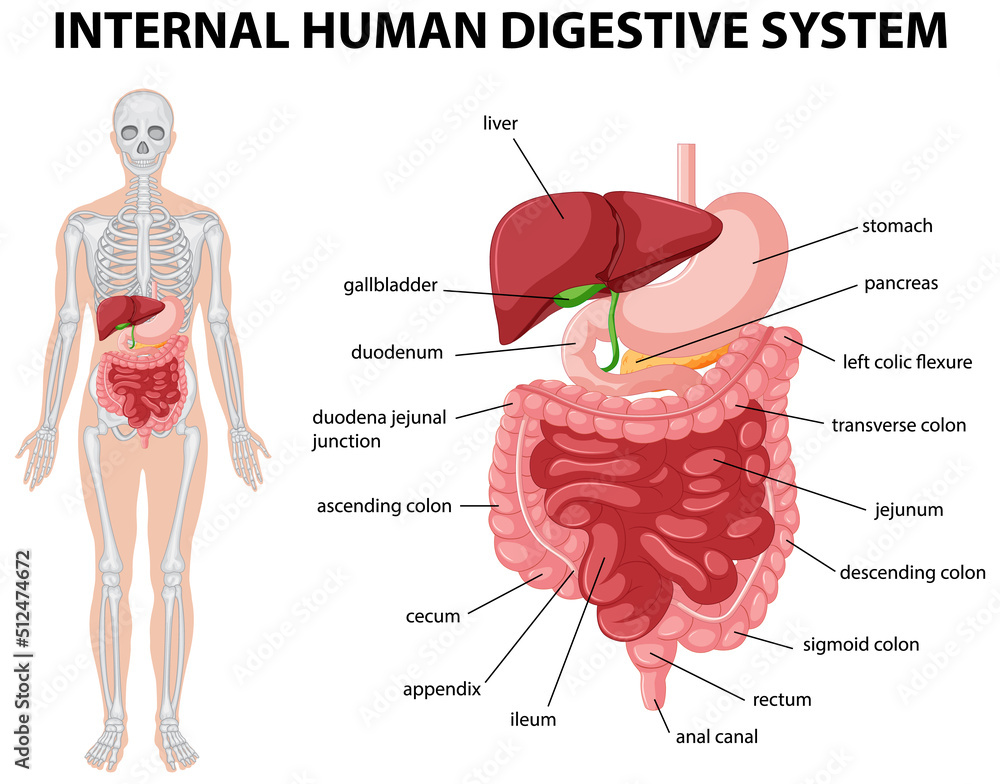 |
| Taken from Google |
Understanding the Importance of Digestive Health
Let's take a moment to grasp why digestion important before we get into how to do it. Our food is converted into the vital nutrients that our body needs for energy, growth, and repair through the digestive system. These nutrients are properly absorbed and utilised when the digestive system is operating at its peak, which promotes general health and vigour.
Embrace a Nutrient-Rich Diet
 |
| Taken from Google |
- Fruits and vegetables: are a good source of dietary fibre, antioxidants, vitamins, and minerals, all of which aid with digestion. Constipation is avoided and healthy bowel movements are aided by fibre.
- Whole Grains: High-fiber foods like whole wheat, brown rice, quinoa, and oats help with regular digestion and gut health.
- Lean proteins: Lean meats, poultry, fish, tofu, and legumes all contain critical amino acids for physiological function and tissue repair.
- Healthy Fats: Avocados, nuts, seeds, and olive oil all include healthy fats that aid with digestion and nutrition absorption.
Prioritize Hydration
Maintaining good digestion requires adequate hydration. Water supports the flow of waste through the digestive tract and aids in the breakdown of food. Make it a habit to consume enough water throughout the day to keep your digestive system functioning properly.
Harness the Power of Probiotics
Live helpful bacteria called probiotics help maintain a healthy gut environment. They help the preservation of healthy gut flora, which promotes efficient digestion and a robust immune system. You can add probiotic-rich foods like yoghurt, kefir, sauerkraut, kimchi, and other fermented foods to your diet.
Fiber-Rich Diet for Digestive Health
Dietary fibre is crucial for encouraging regular bowel movements and avoiding discomfort from the digestive system. It gives stools more volume, which makes them easier to pass and lowers the chance of constipation. Additionally, fibre functions as a prebiotic, feeding the good microorganisms in your stomach. To improve your consumption of fibre, include whole grains, legumes, fruits, and vegetables in your meals.
Practice Mindful Eating
Paying close attention to your meals and the emotions they arouse while you eat is known as mindful eating. It's about enjoying every mouthful, knowing when you're hungry and full, and being in the moment. By enabling your body to correctly assimilate the food you eat, this practise not only improves your dining experience but also aids digestion.
Stress Management for Digestive Wellness
Digestion can be significantly impacted by stress. Our body's "fight or flight" response can impede digestion when we're under stress. Irritable bowel syndrome (IBS) and dyspepsia are two conditions that have been linked to chronic stress. Take part in stress-reduction exercises like yoga, deep breathing techniques, meditation, and spending time in nature to promote the health of your digestive system.
Regular Physical Activity
Better digestion is only one of the many advantages of regular exercise. The muscles of the digestive system are stimulated by exercise, which facilitates the passage of food through the system. Additionally, it can aid in promoting overall gut health and easing constipation.
Taken from Google
Limit Processed Foods and Sugars
The equilibrium of gut flora can be harmed by processed foods and excessive carbohydrates, which can result in digestive problems. These foods frequently lack the vitamins, minerals, and fibre essential for optimum digestion. Reduce your intake of processed foods and, if feasible, choose whole, unprocessed foods.
Get Adequate Sleep
Overall health, especially digestion, is greatly influenced by sleep. Our bodies go through processes of restoration and repair when we sleep, which are necessary for healthy digestion. To help your body's digestive processes, aim for 7-9 hours of good sleep each night.
Taken from Google
In Conclusion
You must take care of your body from the inside out if you want to improve digestion. You can achieve optimum digestive health by eating a diet high in nutrients, drinking plenty of water, consuming probiotics and fibre, eating mindfully, controlling stress, exercising frequently, and giving sleep top priority. Keep in mind that over time, little, persistent modifications might result in big advancements. You should give your body the greatest possible care since doing so will help you become healthier and happier.

0 Comments